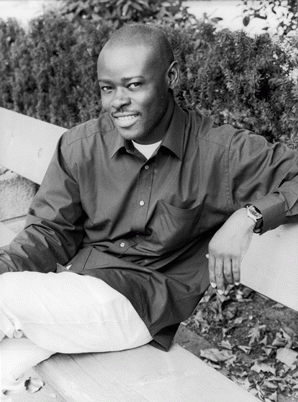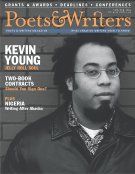As a boy in Nigeria during the 1970s, Helon Habila started reading to shelter himself from the world around him. He lived in the dusty town of Gombe, in the northern region of a country recovering from a long civil war. Although Nigeria had enough oil to make it the richest country on the continent, its government's shift from a military dictatorship to a corrupt democracy did little to rebuild what had been destroyed. The future held little promise for young people like Habila.

His father worked at the Nigerian Ministry of Works, and hoped his son would one day become an engineer. But when he started giving his son romance novels and translations of Arabic classics in Hausa, his native language, he unwittingly put an end to that dream. Rather than focus on Nigeria, Habila spent his time in other places: traveling across the desert with the Israelites of the Bible, swashbuckling with Ali Baba in The Thousand and One Nights, even riding with Hercule Poirot on the Orient Express. Habila read everything—from the giants of Nigerian literature like Chinua Achebe, Booker Prize winner Ben Okri, and Nobel laureate Wole Soyinka to pulp novels by Nick Carter and James Hadley Chase.
At the same time he was falling in love with books, Habila was working to master the art of telling stories. In his fifth year of primary school, his teachers recognized his talent and took him to various classrooms to spin his tales for the other kids. In time, these two urges—the need to inhabit a fictional realm, and the need to create one—would come to dominate his life.
In the real world, however, things were not going nearly as well. Nigeria was shifting between military and civilian rule. In 1976, Lieutenant-General Olusegun Obasanjo seized power and implemented an American-style constitution before retiring to his pig farm. Elections followed, but in 1983 and again in 1985, coups saw the military regain control.
After high school, Habila enrolled in the engineering program at Nigeria's Bauchi University of Technology, but dropped out after one year. He then switched to Bauchi College of Arts and Science, but soon quit going to classes completely. By the mid-1980s, he had given up on his father's dream for him to become an engineer, and finally went home to face his failure—and his father. Habila remembers, "All he did was to stare at me and weep into his food."
Habila had no idea which direction his life should take until he found a copy of Aspects of the Novel by E.M. Forster. This was the signpost he'd been looking for. The book directed him back to the familiar world of literature, and offered him a map to a new life in which he was a writer. Habila holed up in his room, reading and writing, and soon his father began to worry that his son had no friends besides the characters in his books. Then, in 1989, just as Habila was emerging into this new life, his father and younger brother were killed in a car crash. His father never lived to see Habila enter the university for the third time.
This time he studied English and literature at the University of Jos. And this time he thrived.
Nigeria, however, was far from thriving when Habila finished his degree in 1995. Two years earlier, General Sani Abacha, a dictator accused of numerous human rights violations, had taken power and begun his reign during perhaps the worst period of corruption the country had seen. When Abacha ordered the execution of writer and activist Ken Saro Wiwa in 1995, nearly every country in the world imposed sanctions on Nigeria. As a result, the economy was dying at the same time it was being pillaged, and there were unemployed university graduates everywhere.








